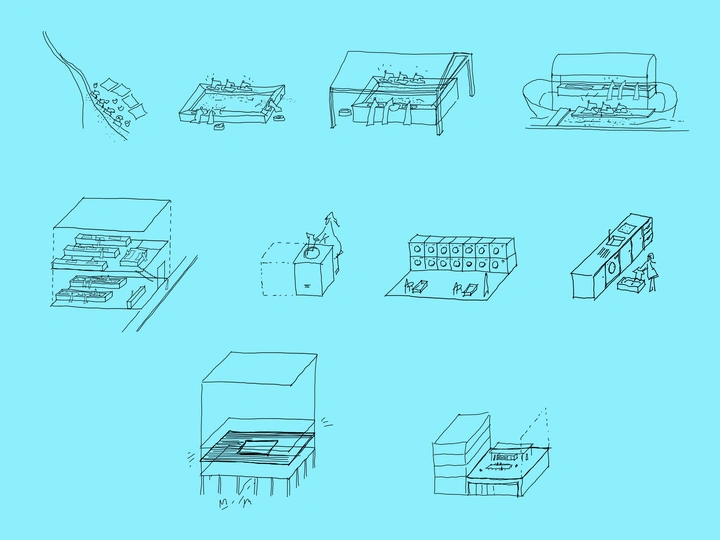Water, Women, Wards : reclaiming the washhouse

Jihana Nassif
RUÉE is a collaborative architecture and urbanism practice founded in 2021 in Paris by Irati Lasa Amo and Jihana Nassif. Born from a shared desire to rethink how we inhabit and narrate fragile territories, RUÉE fosters dialogue between disciplines and stories to build a shared culture of urban renewal.
As architect-urbanists, we develop a sensitive and ecological approach focused on vulnerable environments—especially urban rivers—working across scales and formats: from writing and drawing to research and site-specific actions.
Trained in France, Spain, Brazil, and Slovenia, and having worked with renowned Paris-based offices (TVK, Atelier Jacqueline Osty), we cultivate an open-ended methodology at the intersection of architecture, landscape, and urban planning.
RUÉE was awarded two Europan prizes (Quimper and Marseille) and selected for the French Pavilion Living with at the 19th Venice Architecture Biennale (2025).
The project Discover Me a River in Marseille marked a turning point by proposing a bioregional reading of the Aygalades watershed and a renewed balance between city and river. This led to our ongoing research The Sense of Water, exploring the links between water, ecology, memory, and collective practices. Developed within the Architectures of Water program in collaboration with AAIIA, a French interdisciplinary network fostering dialogue between design and engineering.
This research resulted in an exhibition and participatory workshop at the Maison de l’Architecture Île-de-France, a lecture at the Versailles Architecture and Landscape Biennale (2025), and an upcoming publication.
RUÉE embraces experimental, inclusive, and feminist approaches to imagine the city as a space of care, equality, and urban hospitality.
Alongside research, we engage in architectural projects in Paris and São Paulo, focusing on rehabilitating existing buildings that open new relationships between architecture, landscape, and ground-floor urban life.
This project is rooted in our ongoing research "The Sense of Water", which explores water as both a living material and a vector of care and connection. Building on this foundation, we now wish to focus on the timeless triad of water – women – fabric.
We examine the specific figure of the washhouse: a utilitarian architecture, yet profoundly loaded with social and political meaning. It speaks of women’s place in the city, between visibility and erasure, between public space and domestic life. At once a place of labor, but also of sorority and empowerment.
We draw on the history of washhouses, witnesses of a shift: laundry, once a collective act, gradually moved into the private sphere. In Paris, the Seine hosted floating washhouses, while in rural areas, covered stone basins reflected local vernacular styles. By the late 19th century, growing awareness of hygiene provoked the rise of public washhouse buildings; the practice became professionalized and male-managed, displacing women from roles of autonomy.
The washing machine, a symbol of technical emancipation, paradoxically erased these spaces of female sociability, isolating the practice within the home. Today, laundromats are mostly monofunctional, profit-driven, and often hostile spaces.
Faced with climate change, resource scarcity, and housing precarity, we aim to rethink laundry as a shared practice, capable of weaving new forms of social connection. What if laundry returned to the public sphere, becoming a space of meeting, regeneration, and hospitality?
Our proposal, deliberately speculative, seeks to revive the memory of washhouses as a forme of female heritage while imagining their future. This could take the form of installations in public space, or a broader reflection on the utopian washhouse—developing prototypes and models to be shared in a publication or exhibition. Another path would explore the visual narrative of these spaces and their users through documentary film.